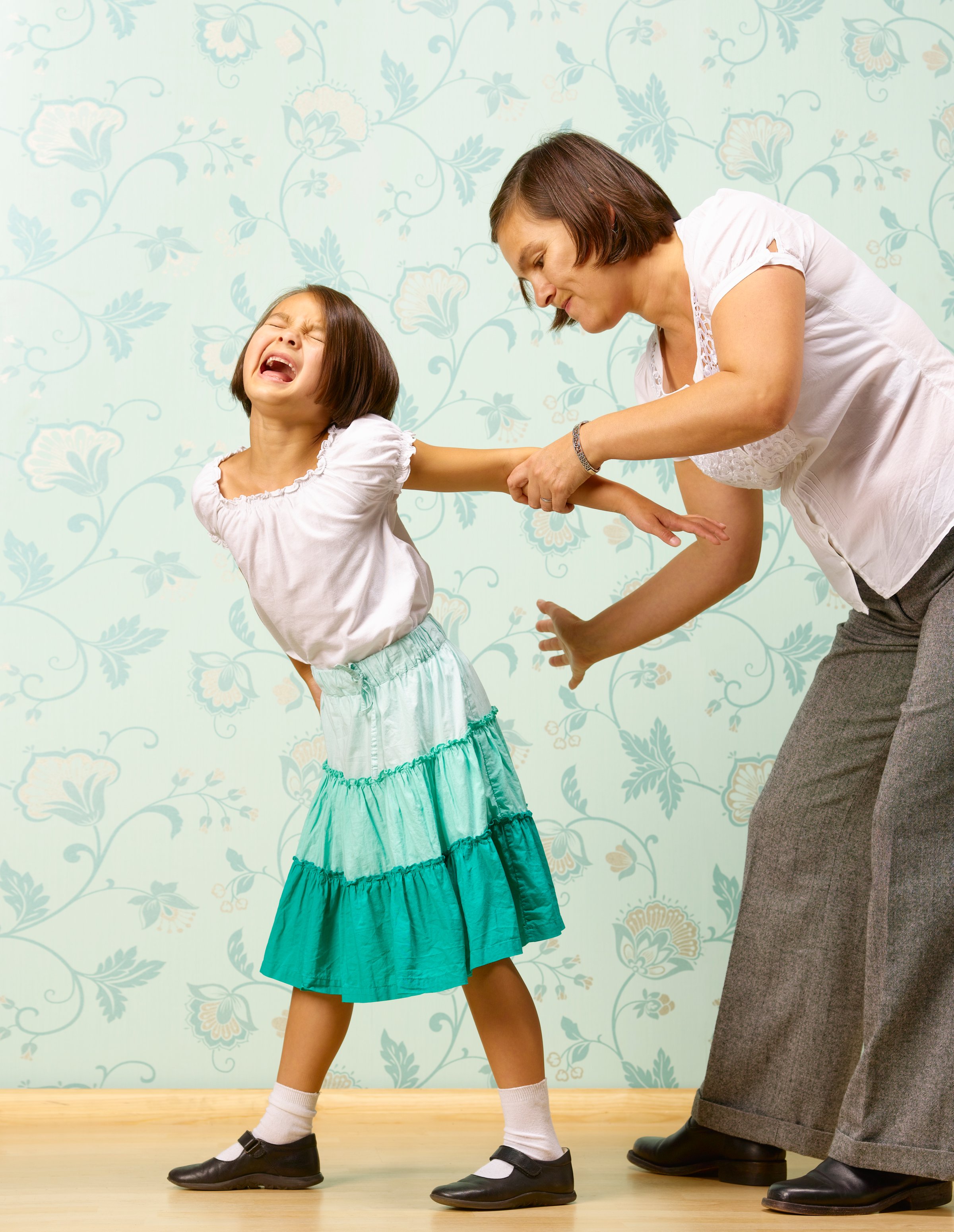

This article originally appeared on xojane.com.
I knew something was wrong the moment he walked through the door. My husband’s footsteps, as familiar to me as fresh raindrops, mud-stained shoes, and thumbprints on refrigerators, were a backdrop to what I was doing.
We were entertaining a good friend of mine and her family. Everyone was downstairs—my friend, both of our husbands, and the slew of kids we had between us—and I was upstairs putting the final touches on dessert.
She was a new-ish friend, but the kind I wanted to keep. Funny and sweet, smart and thoughtful. Our husbands got along well and because my kids were older than hers, they got to play the coveted big kid role when we were all together.
So in short, when I saw the look in my husband’s eyes when he walked through the basement door, I matched it with one of my own that said, quite simply, Don’t ruin this.
New friends are hard to make as an adult and ones the whole family gets along with aren’t to be taken for granted. I knew he understood this, so I felt absolutely certain that whatever it was that was bothering him, we’d let it go. Of course we would.
Our conversation was paused by everyone else coming upstairs, their footsteps announcing their presence one step at a time. They must have heard me think dessert.
The night wrapped up quickly from there and after we said our goodnights and ushered our kids to bed, we did the dishes in the way that we’ve done them for more than a decade now—side-by-side, shoulders grazing, not quite out of each other’s way in a kitchen not made for two. I rinsed and he loaded as we dissected the details of the night.
“What happened in the basement?” I asked, mid-wash. My hands were soapy, wet, and slippery. My voice was even, curious, and — if I’m being really honest — skeptical.
He paused what he was doing, too, and over running water and an open dishwasher he said, “Listen to this.”
I stood with my hip pressed against the sink, my fingers laced around plates and forks and knives that I didn’t realize I had stopped washing, and I waited for his next words. What could they possibly be?
“She spanked her.”
It was as simple, and as complicated, as that. When their daughter misbehaved in our basement, my friend walked over to her, said, “No,” in a firm voice, and in front of my husband—and my three young kids—spanked her four times; once for each year she was old.
After my husband explained these details, I stilled. The faucet was running, the fork or plate or glass that I was holding was long clean, and long forgotten. I didn’t know what to say.
I was spanked a handful of times as a child. Not often and not brutally, but still, I was. I remember each and every time one of my parents’ hands met my skin. I don’t have a single recollection of what my misbehavior was any of those times, but I do remember the spank, the slap, the hit. Once was in our kitchen, several times were in my bedroom, once was outside.
While I’ve (truly) never been angry with my parents for their form of discipline, I knew that it wasn’t the way I wanted to raise my own children. And before Jason and I had kids, before we even got married, we agreed that we’d never lay (that kind of) hand on them.
I know— with every fiber of my being—that parenting young children is hard. We’re all stressed and tired and overwhelmed, and yet, as a mother, as a former teacher, and as a human being, I don’t believe that hitting our children should be an option.
That night, Jason and I discussed at length what to do about this friendship. We weren’t far enough into it to have strong, durable threads between us that could have rendered this incident unimportant. But we had spent enough time together that we couldn’t just disappear, or erase our connection.
Except, that’s exactly what I ended up trying to do.
Jason and I decided that night that we would let this all go because, “who were we to judge?” We were proud of ourselves for falling on the side of non-judgement.
Then, just a few weeks later, my friend spanked her child in front of us again. We felt equally, if not more so, uncomfortable. After that night, we knew we were done. This wasn’t something we could get beyond and it was, clearly, something that was just a part of their parenting.
I’m not embarrassed to admit that I judged my friend. I think this is something that we all do. We watch others and decide if their behavior is similar or different to our own. I’ve been called too strict by one friend and too loose by another. I think this is a normal part of maneuvering parenting side-by-side.
I am, however, embarrassed by one part of this story. I wasn’t mature enough at the time to broach this subject with my friend. Every time I rolled the conversation around in my mind, it just felt too awkward, too personal, too difficult.
So I chose to let the friendship fade instead of engaging in a potentially awkward conversation. I became less available, I stopped commenting on her Facebook statuses, and, eventually, I stopped responding to her texts.
I feel like too much time has passed since then to contact her now, but if I had the chance to do it all over again, I would sit down with her face to face, mom to mom, and explain why spanking makes me uncomfortable. I’m not sure if I would have changed her parenting style, but I do know that I would have had a better chance of doing so by speaking up instead of giving her the silent treatment and disappearing act I chose instead.
The second time my friend spanked one of her kids at my house, it was because her daughter hit mine. It’s hard to say if her daughter was doing what she was taught. But I do know this: The words, “We don’t hit,” were meaningless to their family, and that was—and is—something I just can’t let go of.
Galit Breen is a Minnesota writer who co-directs the Listen to Your Mother Show in the Twin Cities, and writes for allParenting, Everyday Family, Mamalode Magazine, and The Huffington Post blogs.
More Must-Reads from TIME
- Why Biden Dropped Out
- Ukraine’s Plan to Survive Trump
- The Rise of a New Kind of Parenting Guru
- The Chaos and Commotion of the RNC in Photos
- Why We All Have a Stake in Twisters’ Success
- 8 Eating Habits That Actually Improve Your Sleep
- Welcome to the Noah Lyles Olympics
- Get Our Paris Olympics Newsletter in Your Inbox
Contact us at letters@time.com